How does weather affect the dawn chorus?
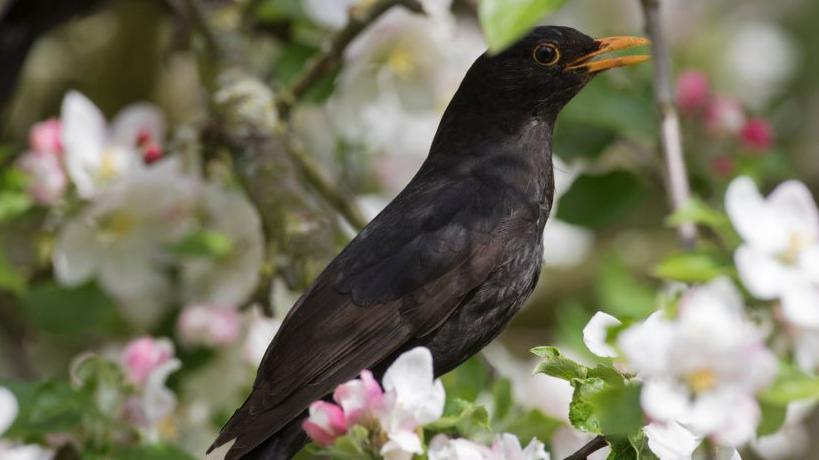
- Published
The dawn chorus is one of nature's greatest concerts.
There's something calming and magical about waking up to the sound of birdsong - a timeless signal that the day has begun.
Sunday 4 May is International Dawn Chorus Day and it's celebrated by people around the world who rise early to appreciate this natural symphony.
But can the weather have an impact what we hear?
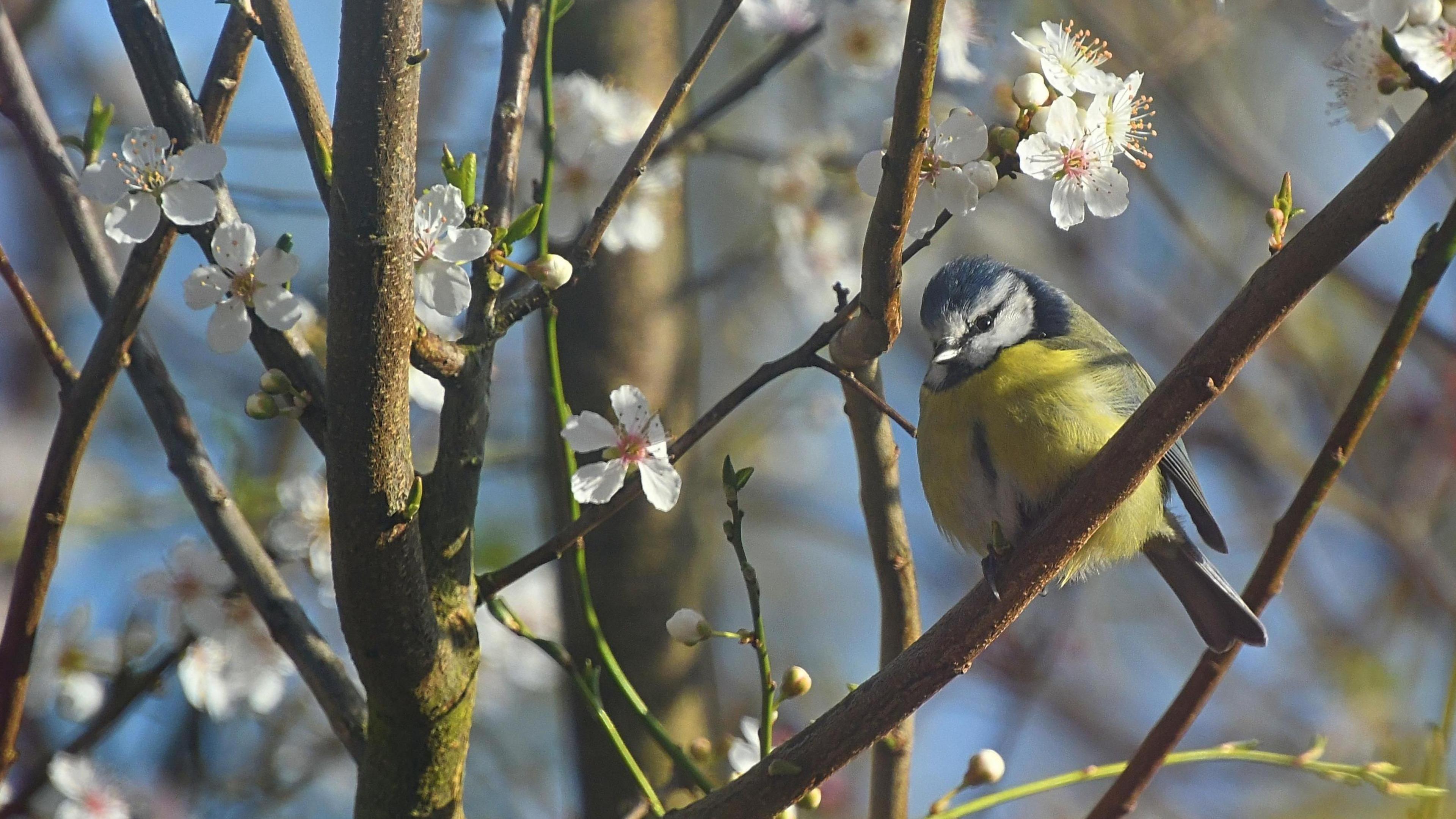
A spot in the morning sunshine in Royal Leamington Spa, Warwickshire
Why do we love birdsong?
Scientists believe that the sound of birds singing makes humans feel safe.
The soaring melodies are a reassuring sign that all is well in the environment.
When birds fall silent, it can indicate that bad weather is on the way, or that a predator is nearby, meaning the absence of birdsong can feel unsettling - even if we don't consciously realise why.
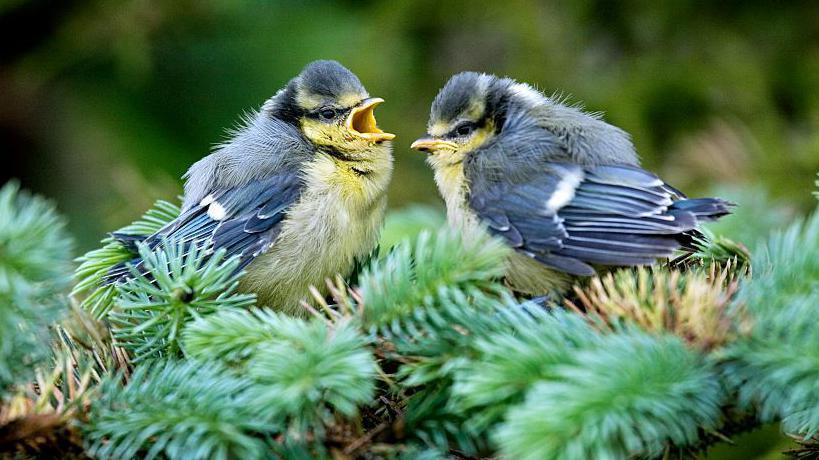
Blue Tit fledglings in a tree
What impact does the weather have?
Still, dry mornings are the best to hear the chorus in all its glory. Even during a quiet, steady drizzle, most species will sing much as usual
But according to Daniel Johnson, from the British Trust for Ornithology:
"Birds tend to avoid singing in bad weather conditions. This includes windy, rainy or cloudy conditions as during these times they're usually low down conserving energy"
A study, external carried out by researchers in the USA also showed that exposure to high temperatures can reduce song production.
When is the best time to hear the down chorus?
The best time to listen is around 30 minutes before and after sunrise, when birds are most active.
On Sunday 4 May 2025, sunrise in the UK ranges from around 05:22 BST in Edinburgh to 05:39 in Cardiff and Belfast, so the ideal time to hear the chorus is roughly between 04:50 and 05:50. You can find out the sunrise and sunset times for where you live on the BBC Weather website or app.
Blackbirds and robins are usually the first to sing, followed by wrens, thrushes, and warblers as the light increases.
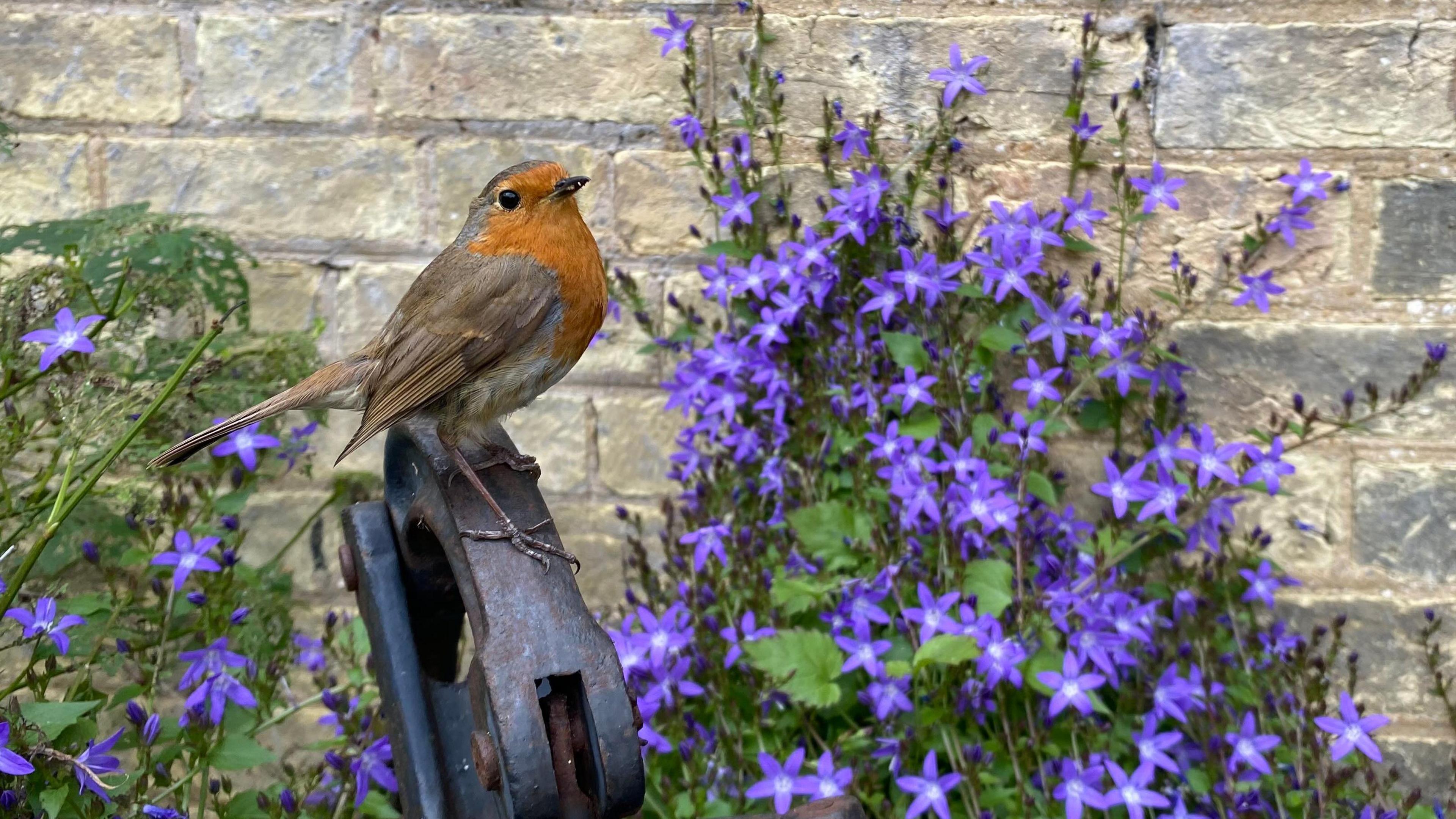
A robin sits on a pump in Bedfordshire.
Three easy ways to enjoy the dawn chorus
Whether you're heading outdoors or staying cosy at home, there are lots of simple ways to enjoy the dawn chorus this year:
1. Open your window
You don't have to go far, just crack open a window and let the birdsong in. Even in towns and cities, you'll be surprised at what you can hear.
2. Take a walk
If you can, head out to your local park, woodland or green space for a peaceful early stroll. The quiet of dawn lets you hear each bird clearly.
3. Tune in online
The Wildlife Trust and other nature groups often stream the dawn chorus live, so you can enjoy it wherever you are. Just search Dawn Chorus Live Stream on the morning of the event.
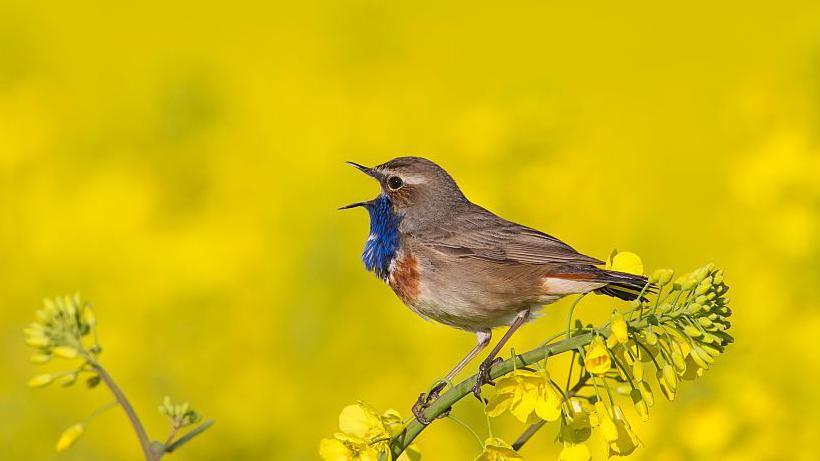
White-spotted bluethroat male calling from flower in rape field in spring.
And don't forget to share your photos.
If you capture a special early morning view, upload it to BBC Weather Watchers —we love seeing your photos and might even feature them on our site or TV bulletins.
And of course don't forget to check the weather where you are. For the most up to date information, check the hour-by-hour forecast where you live on the BBC Weather website or app.
- Published3 days ago

- Published3 March
